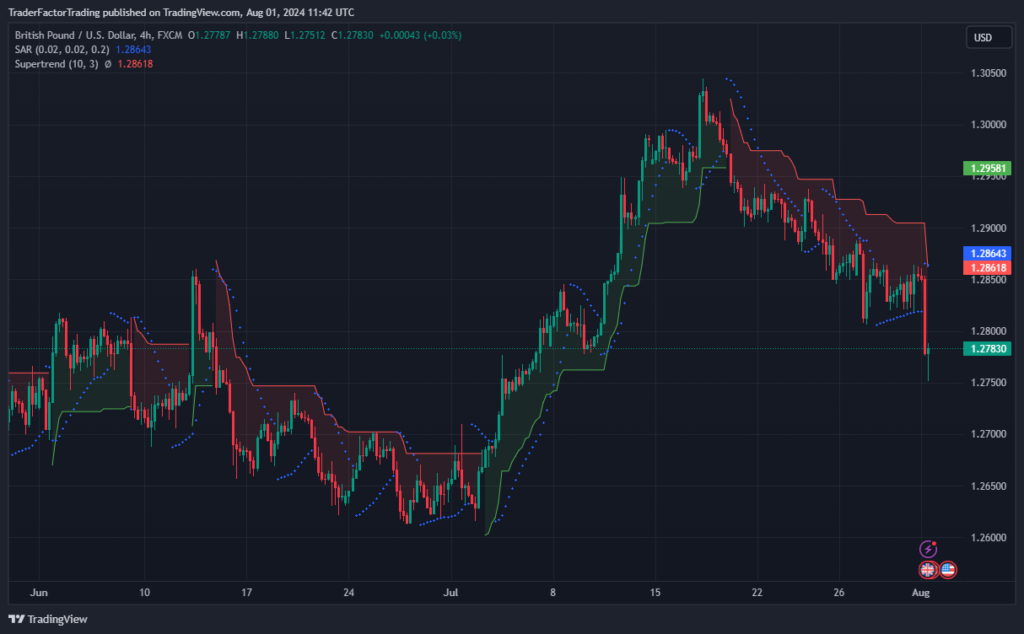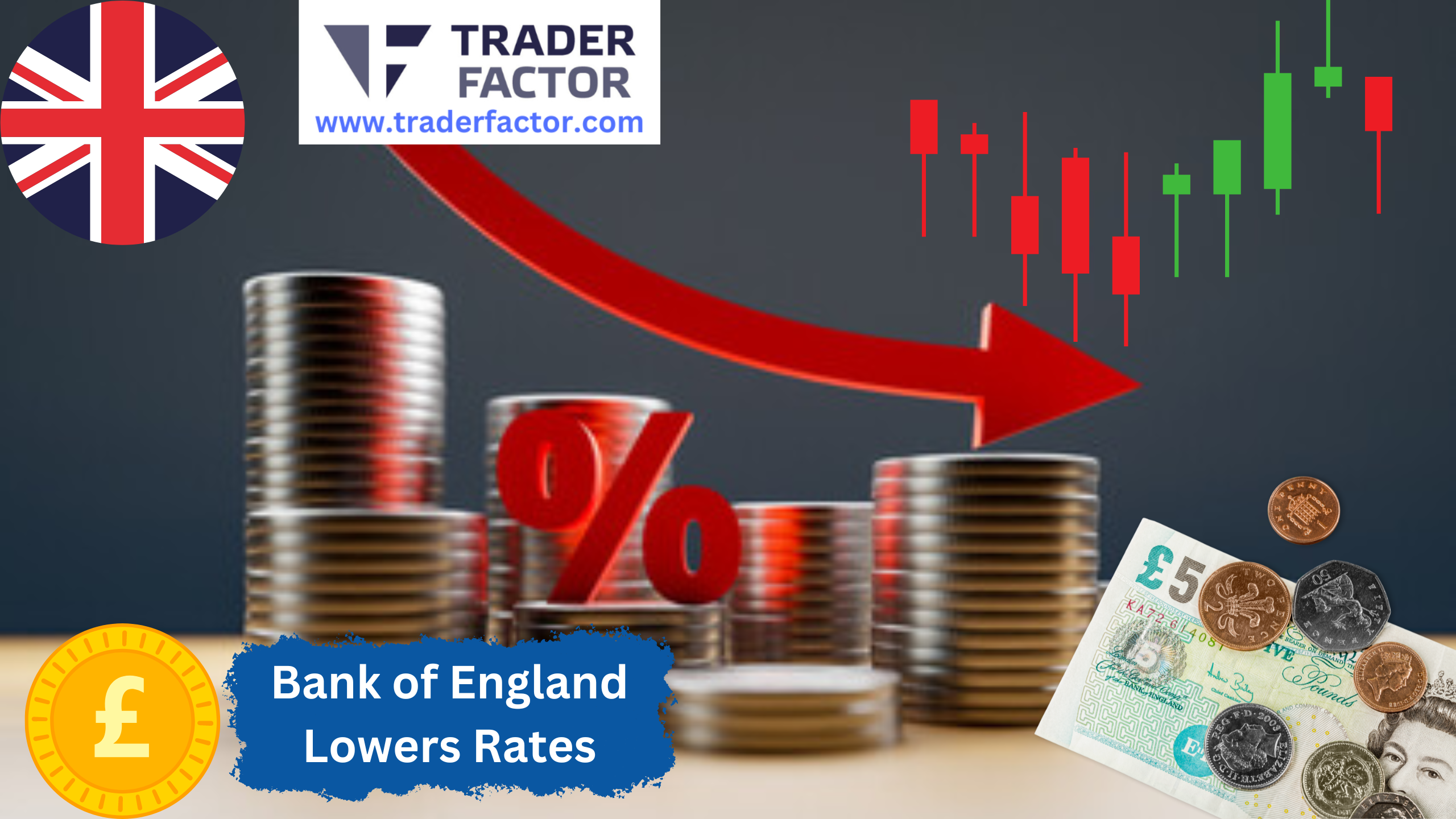The recent decision by the Bank of England (BoE) to cut its policy rate by 25 basis points (bps) to 5% has had notable effects on the Pound Sterling (GBP). This move comes after a narrow vote among policymakers, sparking a variety of economic reactions and market sentiments.
Table of Contents
ToggleImmediate Market Reaction-Pound Weakens
The immediate market reaction to the BoE’s rate cut saw the Pound Sterling face sharp selling pressure against its major peers during Thursday’s London session. The reduction in the key borrowing rates by 25 basis points (bps) to 5% was expected and came with a 5-4 majority in the Monetary Policy Committee (MPC) vote. Policymakers who voted for the rate cut included BoE Governor Andrew Bailey, Sarah Breeden, Swati Dhingra, Dave Ramsden, and Clare Lombardelli.
GBPUSD 4-hour Chart

Interest Rate Differential
One of the primary reasons behind the weakening of the Pound Sterling can be attributed to the interest rate differential. When the BoE cuts its policy rate, the returns on GBP-denominated investments decrease. This may make GBP-denominated assets less attractive to investors compared to other currencies with higher interest rates. Consequently, investors may move their funds to markets offering better returns, leading to a sell-off of GBP and a subsequent decline in its value.
Economic Outlook
A reduction in interest rates often indicates that the central bank is concerned about economic growth. By cutting rates, the BoE may be signaling potential weaknesses or risks in the UK economy. This can lead to reduced confidence in the currency. Additionally, lower interest rates can result in higher inflation, as borrowing becomes cheaper and spending increases. If inflation rises too quickly, it can erode the purchasing power of the currency, further contributing to its depreciation.
Market Sentiment
Market sentiment plays a significant role in the value of the GBP. Currency traders and investors often react quickly to monetary policy changes. A rate cut can prompt speculative trades against the GBP, anticipating further depreciation. If the market perceives the rate cut as a sign of deeper economic troubles, risk aversion may increase, leading to more selling of GBP in favor of perceived safer currencies like the US Dollar (USD) or Swiss Franc (CHF).
Relative Economic Performance
The relative economic performance of the UK compared to other major economies also influences the value of the GBP. Investors closely monitor the performance of economies and their respective interest rates. If other major economies maintain higher rates or exhibit stronger economic indicators, the GBP is likely to weaken as funds flow towards those more promising markets. The BoE’s rate cut to 5% reduces the attractiveness of GBP-denominated assets, signals potential economic concerns, and shifts market sentiment, all of which contribute to the weakening of the Pound Sterling.
Future Forecasts and Investor Response
BoE’s latest forecast report for the year-end indicates that the bank rate will be at 4.9%, slightly higher than May’s forecast of 4.8%. This suggests that there may be no further rate cuts this year. The bank also projects wage growth momentum at 5%, aligning with previous projections. Investors are now awaiting further cues from BoE Governor Andrew Bailey’s speech regarding interest rate guidance and the impact of fiscal policies on inflation and the economy.
The Bank of England’s recent decision to cut its policy rate to 5% has set off a chain reaction in the forex market leading to the weakening of the Pound Sterling.
Disclaimer:
All information has been prepared by TraderFactor or partners. The information does not contain a record of TraderFactor or partner’s prices or an offer of or solicitation for a transaction in any financial instrument. No representation or warranty is given as to the accuracy or completeness of this information. Any material provided does not have regard to the specific investment objective and financial situation of any person who may read it. Past performance is not a reliable indicator of future performance.


















